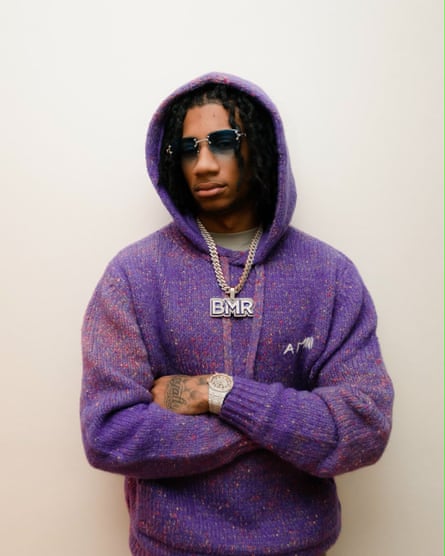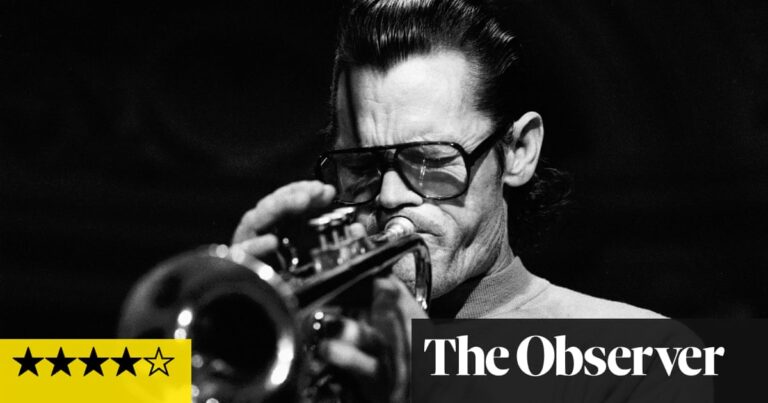The lawyer Shami Chakrabarti, the DJ Annie Mac and Labour MPs Nadia Whittome and Kim Johnson are among the figures lending support to a new campaign to change how rap lyrics are used as evidence in UK criminal hearings.
In the past three years, the University of Manchester conducted a study that revealed at least 240 individuals in the UK have had their rap music used as evidence in criminal trials. This includes accusations of being part of a gang and purported admissions of illegal actions within their lyrics. Some notable cases include popular artist Digga D being issued a criminal behaviour order that restricts him from referencing specific names, places, and topics in his songs, as well as prosecutors trying to use drill music lyrics in a murder trial against rapper Unknown T, who was eventually found not guilty.
The matter is currently being investigated in the United States. In a recent ruling, Judge Ural Glanville stated that the lyrics of Atlanta rapper Young Thug could be used as evidence in a racketeering case against him. Glanville informed the rapper’s defense team that the songs could be used to demonstrate their potential involvement in other activities. He also clarified that this is not a violation of free speech.
Whittome, a Member of Parliament for Nottingham East, describes a scenario of being wrongfully accused in court and having a song written with friends used as evidence to show criminal intent or behavior. This is a common occurrence and Whittome expresses frustration at the unjust use of rap and grime music, which is a beloved part of many cultures, in court cases. This practice perpetuates racist stereotypes and can lead to wrongful convictions.
In June, a representative from the Crown Prosecution Service stated to the Guardian that they have not charged anyone solely based on their involvement with drill/rap music. However, if the music is relevant to a case against a suspect, it may be used as evidence.

Whittome is planning to table a bill “as soon as I can, probably sometime in the new year”, which has been drafted by campaign group Art Not Evidence. It aims to change the law to raise the threshold for rap and other forms of creative expression to be admissible as evidence.
In late 2022, a team of lawyers, academics, and music industry experts came together to establish Art Not Evidence. Their goal is to limit the practice of using police officers as rap experts in criminal cases, and promote a shift in societal views towards genres like drill and grime being recognized as legitimate forms of art.
An open letter has been penned that is available for signatures starting today. Notable individuals such as DJ Annie Mac, Lady Chakrabarti, Labour MP for Liverpool Riverside Kim Johnson, and Eithne Quinn, who leads the Prosecuting Rap project at the University of Manchester, have already signed.
Keir Monteith, a prominent member of the Art Not Evidence movement, emphasizes the importance of altering the use of rap music in serious criminal trials.
“I was involved in a murder trial about ten years ago,” he recounts. “The prosecution had evidence such as forensics, CCTV footage, witness testimonies, and photographs. However, during the trial, they suddenly introduced a statement from a police officer involved in the case. This statement focused on my client’s alleged involvement in a rap video. I was shocked and caught off guard.”
As a lawyer specializing in criminal cases, I was surprised that the prosecution in a murder trial was using music as evidence. While rap is a form of music with lyrics that express freedom of speech, it should not be considered as proof. In a murder case, the main focus should be on physical evidence, witness testimonies, and CCTV footage.
Chakrabarti, who signed Art Not Evidence’s public letter, argues that utilizing rap music in legal proceedings has the potential to result in a “triple misuse of authority”.
According to her, if this evidence is misinterpreted, it unfairly assumes that cultural influences automatically lead to criminal behavior. This is similar to the false assumption that simply enjoying rebel songs makes someone a member of the IRA. It is absurd to make these connections, just as it would be to assume that someone who likes the Godfather movies is involved in organized crime. This type of thinking is both illogical and harmful to public trust, especially among young Black individuals.
The second form of mistreatment involves racism and stereotyping. The third issue is the belief that law enforcement will present themselves as knowledgeable witnesses in a pseudo-scientific manner when linking music to crime.
The purpose of Art Not Evidence is to prevent the use of rap lyrics, videos, or similar content as evidence, unless it is directly connected to other forms of proof such as DNA, CCTV footage, forensic evidence, or eyewitness testimony. They advocate for a thorough analysis of the relationship between rap material and other evidence before it is presented to a jury.
In a different instance of a murder trial, Monteith states that the prosecution used a rap music video as evidence. This was deemed to be irrelevant and biased. The judge in this case implied that the defendant featured in the video and had possession of it was associated with a violent gang, which is incorrect.
Abenaa Owusu-Bempah, a professor at the London School of Economics, is advocating for more strict regulations regarding the use of lyrics as evidence in legal cases. She believes that currently, rap-based evidence is not being thoroughly examined, leading to situations where music, lyrics, and videos unrelated to the crime are being used as evidence for factors like gang affiliation and motive.
Elli Brazzill, the creator of the campaign, clarifies that they face criticism from individuals who argue that rap and drill music and their accompanying videos contain violent language and visuals. Some claim, “In drill music, they call out specific names and make certain statements,” but we do not deny that this occurs. Our goal is to have a more thorough evaluation process to ensure that everything is relevant in the context and not taken out of context.
Owusu-Bempah concurs, stating: “A large part of rap is fictional, exaggerated, and hyperbolic, therefore we must ensure that any usage of it is a trustworthy representation of reality.”
However, she contends that law enforcement and prosecuting attorneys sometimes misuse this music, often relying on interpretations by police officers who are presented as experts in rap.
The music is occasionally composed months or years prior to the supposed offense … The term “ting” is frequently utilized, which is an abbreviation for “thing” and is commonly used to refer to girls, but in certain situations, it is implied that “ting” means gun – although that was likely not the intended meaning in the lyrics.
During the month of June, Michael Railton, who spearheaded a Met police program to train officers as expert witnesses, stated that he and his team were expected to maintain high levels of impartiality and were not focused on targeting a specific community or group. He also expressed his desire for rap artists to produce socially responsible music that does not contribute to the negative cycle of their community and personal well-being.
The Art Not Evidence campaign has a comparable belief to the Art on Trial: Protect Black Art campaign in the United States. This campaign has received support from notable figures such as Jay-Z and Megan Thee Stallion. In September 2022, California made it illegal to use rap lyrics as evidence in trials.
Brazzill, who urges the music industry to pay more attention to the issue, believes that if America can navigate their complex system and multiple states, then we can too. He notes that while our system may also be complicated, there are many individuals in the music industry profiting from rap and drill music, yet remaining silent when it comes to its legal implications.
Source: theguardian.com

















